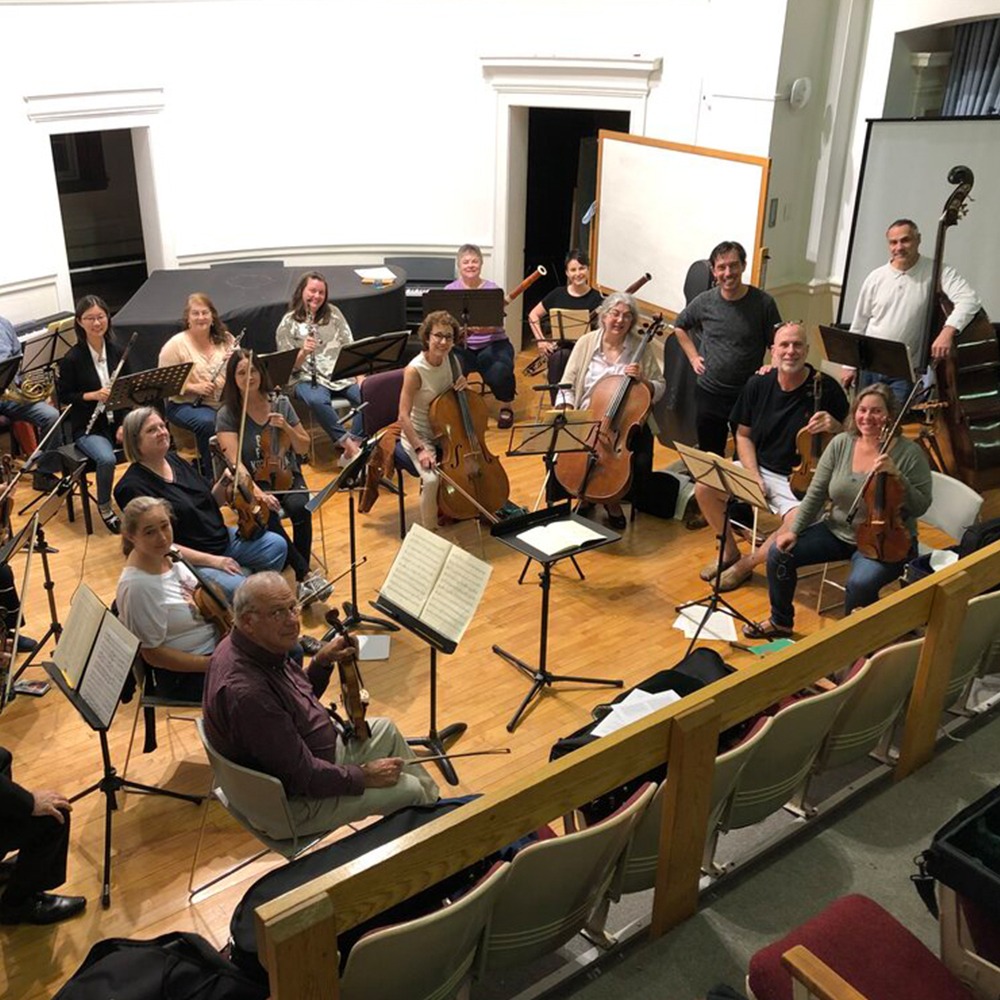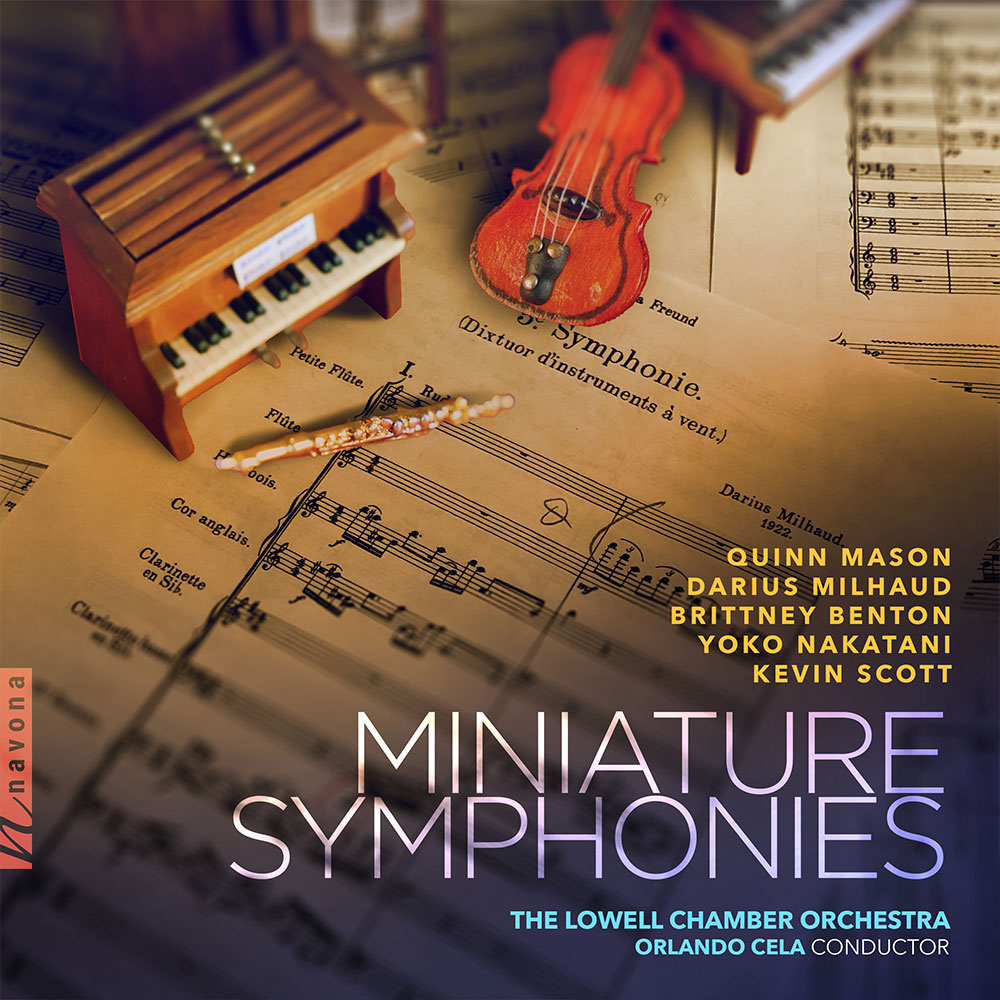
The term “symphony” automatically evokes grandiosity in all aspects – a large-scale orchestra, great compositional complexity and considerable playing time. Orlando Cela and his Lowell Chamber Orchestra turn this idea on its head with MINIATURE SYMPHONIES, an enticing selection of short and snappy sinfoniettas for chamber orchestra.
Today, Orlando Cela is our featured artist on “The Inside Story,” a blog series exploring the inner workings and personalities of our composers and performers. Read on to learn about Orlando’s inspirations, dream collaborations, and how this album was inspired by resilience.
What inspires you to write and/or perform?
When it comes to contemporary music, nobody has all the right answers. My inspiration comes from the composers who are writing meaningful work and are nice humans: when I find a piece that shows care, craftsmanship, and dedication, I want to share it with the world, even if I don’t like it! Then I will program around it with some standards in order to bring the most of conservative audiences to the concert, and introduce them to new creations. The most important mission for a conductor is to become a vessel through which great music gets performed, specially helping the careers of living composers.
If you could collaborate with anyone, who would it be?
A few years back I performed Batá by Tania León, and was lucky to speak over the phone with her for a long time. She is such a beautiful human being, and her music is so well crafted, timely, and accessible, that she is first on my list to collaborate with.
What advice do you have for young musicians?
Help each other. Nowadays, collaboration is key. Not just in practical matters, but for the most fulfilling experiences. Nothing is better than to create something with others and share it with the world.
If we looked through your music library, what would we be surprised to find?
My music library is filled with scores given to me over 20 years — almost half of it — by living composers during their formative years. You will find, for example, a student score by a composer recently performed by the New York Philharmonic, another one by a now famous Israeli composer, etc.; also, a few color photostatic copies of manuscripts of very well known works, such as J.S. Bach’s Saint Matthew’s Passion.
Do you have any specific hopes about what this album will mean to listeners?
I hope that the listeners will see this as an album of resilience. MINIATURE SYMPHONIES was a project to help musicians during the very difficult times of the pandemic. All live concerts were virtual, if they were happening at all, so I decided to commission works that could be performed (recorded) with very few people, to account for the space restrictions and social distancing of the time. Milhaud’s chamber symphonies were a good starting point, so I commissioned composers to write companion, or response pieces to each of the symphonies. These composers wrote works in the worst of conditions, with very specific prompts, and they produced fantastic soundscapes. I hope that the listeners will be inspired to explore the other works by these composers.
How do you prepare for a performance?
The most important factor is knowing the music. Once I assimilate the music, I become the means by which the rest of the ensemble can be efficient: I become the orchestra’s secretary: I anticipate and attend to the needs of each of the musicians in the ensemble as we rehearse, in order for them to be at their best.

The Lowell Chamber Orchestra is Lowell’s first and only professional orchestra, providing the area with an ensemble that presents music at a very high level, of all styles and time periods, entirely free to the general population. Now in its third season, the LCO has presented concerts that encompass established orchestral repertoire as well as multimedia works, stage works, lecture-presentations, and chamber music. As part of its mission of promoting, preserving, and educating, the repertoire includes works from the Baroque to current commissions.

